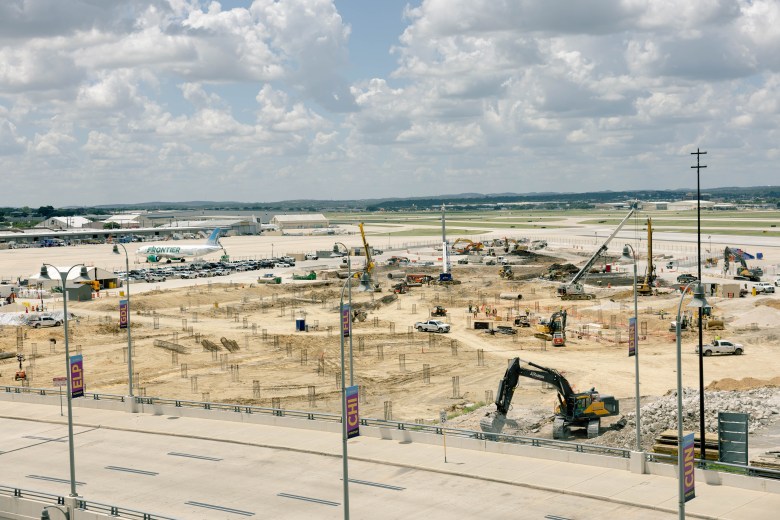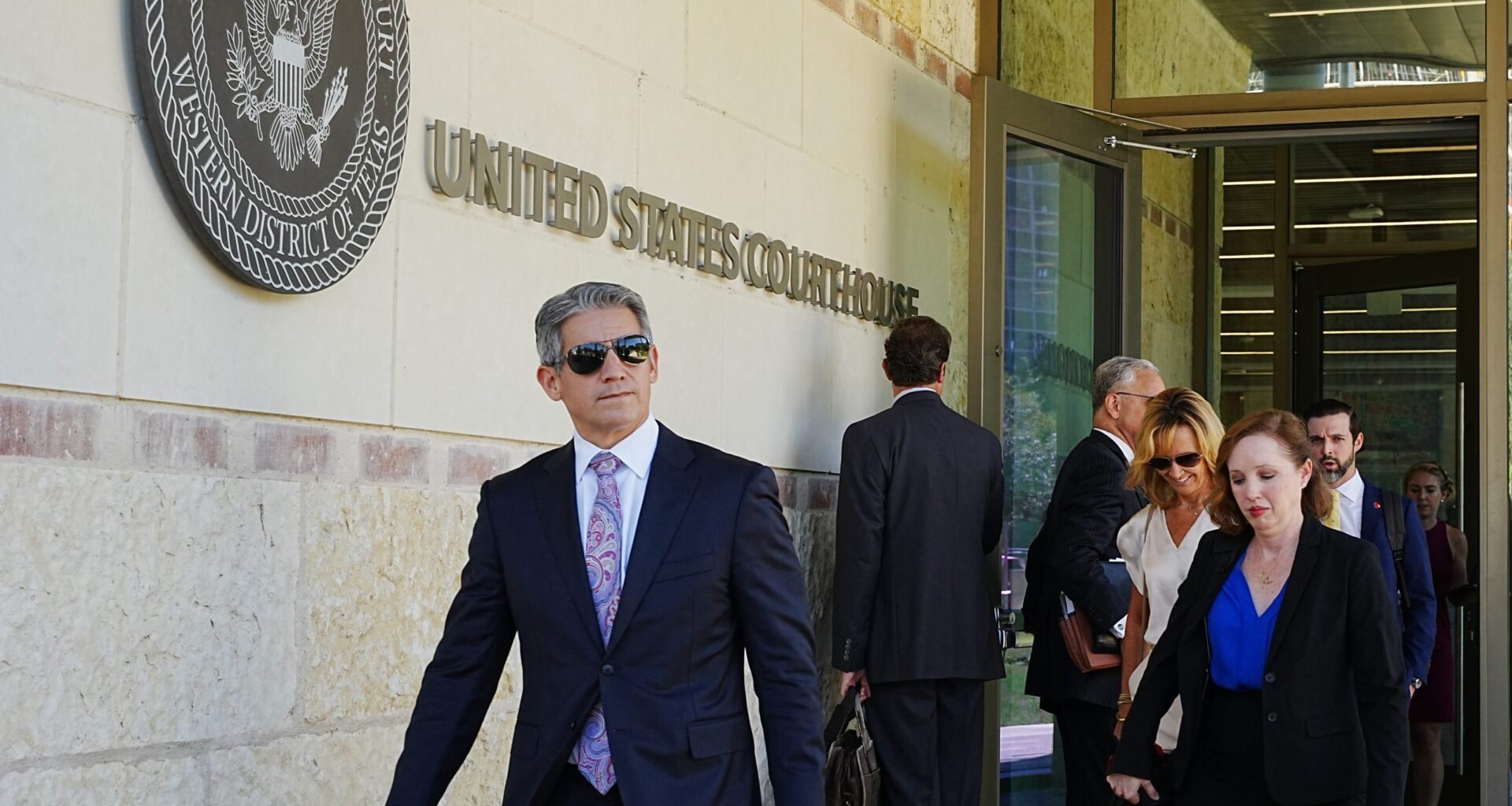Southwest Airlines lost its year-long lawsuit over the City of San Antonio’s decision to leave the airline out of its new $1.4 billion San Antonio International Airport terminal.
The lawsuit was filed in September 2024 after the city announced that Delta Airlines, American Airlines and other international carriers would be housed in Terminal C and Southwest would stay in an aging Terminal A.
Southwest, which accounted for more than one-third of the passengers who used San Antonio Airport this year, is committed to SAT through part of 2026, but says they will keep fighting the decision.
In an email, Southwest said it would continue its legal battle and pursue a separate complaint process with the Federal Aviation Administration.
“Southwest disagrees with the court’s decision to dismiss the case and we plan to appeal,” read a statement from the Dallas-based airline.
U.S. District Court Judge Xavier Rodriguez dismissed Southwest’s lawsuit in a decision released Friday and allowed the city’s proposal to move forward.
Southwest officials did not specify its plans in San Antonio beyond its current schedule.
“Our schedule at SAT and all airports is out through May 2026 — we don’t speculate on future network changes until published,” wrote Southwest spokesperson Chris Perry in an email.
Southwest has yet to sign on to a 10-year agreement for operating at the airport and is therefore paying premium fees on a short-term basis. The airline did not comment on signing onto an agreement in the future.
 Construction of the new terminal at the San Antonio International Airport in June. Credit: Brenda Bazán / San Antonio Report
Construction of the new terminal at the San Antonio International Airport in June. Credit: Brenda Bazán / San Antonio Report
City officials said they were grateful for Rodriguez’s ruling.
“We are grateful for the Court’s ruling and believe wholeheartedly we acted according to law and best practice,” said Airport Director Jesus Saenz in an email. “It remains our goal to ensure that all of our airline partners have the space and facilities to grow their service and be successful in connecting San Antonio to the world.”
San Antonio is building a new, 17-gate Terminal C that will include lounge spaces and checkpoints for international travelers. Southwest officials asked for 10 gates in the new terminal. In court, they said they were initially told they would be able to operate there and were left out in the cold when city officials announced they would stay in the much older Terminal A.
The airline said that decision, even with at least $200 million in proposed city renovations to Terminal A, would prevent the airline from expanding operations and implementing future improvements to its services in San Antonio.
“This malfeasance will impose grossly unreasonable charges upon Southwest and its customers for the use of a substandard, obsolete facility,” read Southwest’s statement.
In its lawsuit, Southwest argued that the city discriminated against Southwest by giving other airlines an unfair advantage at the new terminal. It also said the city’s actions went against the 1978 Airline Deregulation Act because airport officials looked at routes and services when selecting airlines for the new terminal.
The Airline Deregulation Act prohibits states and local governments from regulating airlines’ routes, rates and services. When scoring requests for more gates, city officials included an airline’s route to Washington, D.C., and ability to provide lounge services.
The city argued that it has the right to determine which airlines best suit the needs of travelers and it considered other factors, like load management and traffic, when looking at the new terminal.
Rodriguez sided with the city. Southwest describes itself as a low-cost carrier, he said, and is therefore different from American, Delta and United, who were also competing for Terminal C gates.
He added that the city is a market participant in this case, not a regulator. SAT has to compete with other airports for passengers and is making its decision based on what services and routes Southwest offers, not forcing Southwest to offer a particular service or route.
The law does not stop “a municipal government from participating in the market to operate its own airport in which airlines compete to offer the best prices, routes, and services to passengers and the airports at which they operate,” Rodriguez wrote in his Aug. 29 decision.
City officials were pleased with the ruling and were hopeful that the FAA complaint process, which is separate from the lawsuit, would also go their way.
After an Aug. 19 hearing in front of Rodriguez, city officials also denied misleading Southwest.
When asked about allegations that the city had changed its facts, City Manager Erik Walsh flatly said “we disagree.”
In an email statement, Southwest remained defiant ahead of its planned appeal.
“We maintain that the City of San Antonio violated numerous federal requirements while making crucial decisions about the planned new passenger terminal at San Antonio International Airport,” read Southwest’s statement. “Additionally, the City has made false and misleading statements and is impermissibly attempting to play favorites among its users based upon its own subjective and improper preferences.”
City officials have emphasized that their decisionmaking is community oriented.
“We’re glad the Court’s ruling confirms we did the right thing,” Walsh said in an email Tuesday. “As one of the fastest growing cities in America, we remain committed to doing what is best for San Antonio International Airport and the millions of passengers that use it each year.”
